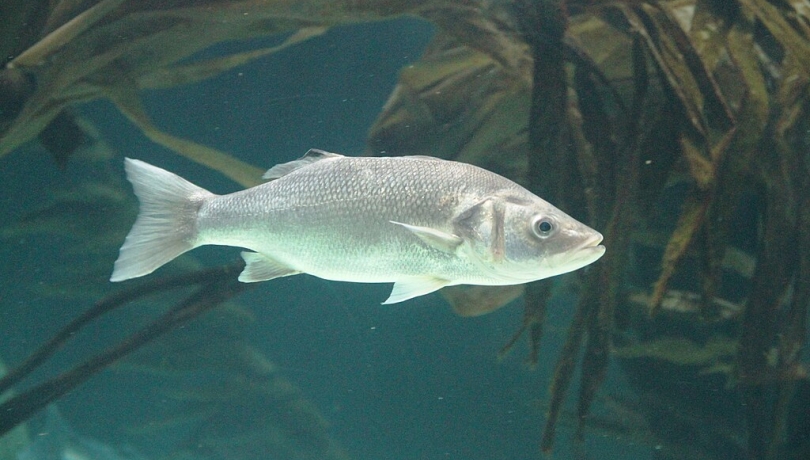Is the main conclusion of a new study led by the ICM-CSIC, which shows that heat can alter the fish epigenome, with these changes being transmitted to their offspring and revealing mechanisms of adaptation and risk in the face of climate change.

Researchers from the Institut de Ciències del Mar (ICM-CSIC) have discovered that exposure to high temperatures during development can leave a biological “imprint” on fish that is transmitted to their offspring, even if they have not been directly exposed, altering their capacity to adapt to change. The findings are detailed in a study published in Epigenetics & Chromatin, providing new evidence of how climate change can influence the biology of marine species.
Among others, it has been demonstrated that temperature can modify DNA methylation —an epigenetic mechanism or biological process that regulates gene activity without altering the DNA sequence— and that a small fraction of these changes can be passed from one generation to the next.
“We found that certain temperature-induced epigenetic marks in the parents are maintained in their offspring, even if these were never exposed to heat,” explains Núria Sánchez-Baizán, first author of the study, currently at IFREMER (France).
The European seabass as a model organism
To carry out the study, the researchers worked with specimens of European seabass (Dicentrarchus labrax), a key species in aquaculture that is particularly sensitive to temperature changes. The experiments were conducted at the IFREMER facilities in Palavas-les-Flots, France.
In total, four treatments were applied: controlled temperature in both parents and offspring, only in the offspring, only in the parents, and a higher-than-usual temperature in both generations. This approach allowed the researchers to distinguish between the direct effects of heat and the inherited ones.
Later, at ICM-CSIC, high-resolution epigenomic analyses tracked hundreds of thousands of DNA methylation sites. Results show that approximately 5% of the epigenetic marks —chemical or structural DNA modifications that can affect whether genes are active or silent— induced by temperature, and present in the sperm of the parents, were transmitted to offspring, even though they were never exposed to heat.
“This phenomenon suggests that a temporary environmental change—such as a marine heatwave—can leave a heritable imprint that is not always beneficial if conditions return to normal, a concept known as an “epigenetic trap” notes Sánchez-Baizán.
Compensatory and adaptive effects
Despite the previous results, the study also offers a more optimistic outlook. In many cases, the temperature effects observed in parents and offspring cancel each other out, generating a compensatory pattern: fish exposed to high temperatures for two consecutive generations show epigenetic profiles and characteristics similar to individuals that have never been exposed.
This phenomenon, known as the epigenetic buffering effect, indicates that the epigenome can act as a damping mechanism or an “epigenetic bet,” which may prove beneficial or detrimental when facing sudden environmental changes.
For the first time, scientists have classified genome regions according to the type of response to temperature: no effect, single-generation effect, cumulative effect, opposite effect, or complex intergenerational interactions. More than one third of the regions analyzed showed epigenetic compensation mechanisms, especially in the testes, suggesting sex-related differences in environmental response.
Changes in key genes involved in sexual development
The research team also analyzed several genes related to sexual development, such as sox9a and hsd17β10. They found that the methylation of these genes varies according to temperature and sex, helping to explain why high temperatures can increase the proportion of males.
In some cases, these marks act as a true “molecular switch”—a control system that regulates gene expression and can determine whether an individual develops as male or female.
Moreover, fish exposed to high temperatures showed greater body growth. However, this effect disappeared when two consecutive generations were exposed to heat, reinforcing the hypothesis of an epigenetic compensation mechanism.
Implications for climate change and conservation
“This is the first time it has been described in such detail how temperature can modify the epigenome of a marine vertebrate and how some of these changes can be inherited,” explains Francesc Piferrer (ICM-CSIC), principal investigator of the study. “This helps us better understand how marine species can respond to climate change —not only at the genetic level but also epigenetically—, while also warning us that these responses can be a double-edged sword.”
The results show that DNA methylation can act as a flexible system capable of adapting to new environmental conditions. However, if these conditions change abruptly, inherited marks can become disadvantages.
This dual nature —between adaptation and risk— has direct implications for the management of commercially important species, aquaculture, and the conservation of biodiversity in the context of climate change.
For all these reasons, the study opens the door to future research on how epigenetic information may contribute to —or hinder— the adaptation of marine species to global warming. It also highlights the need to incorporate epigenetics into conservation and ecosystem management strategies.